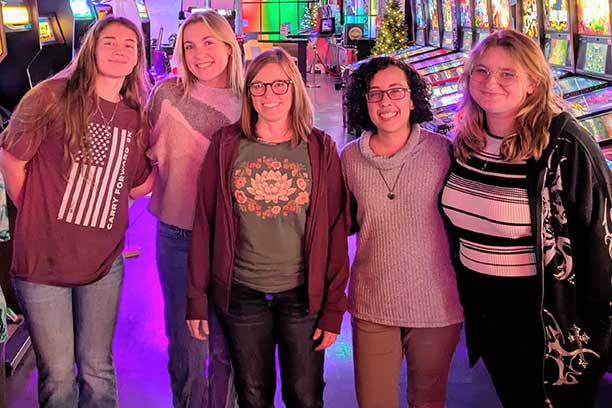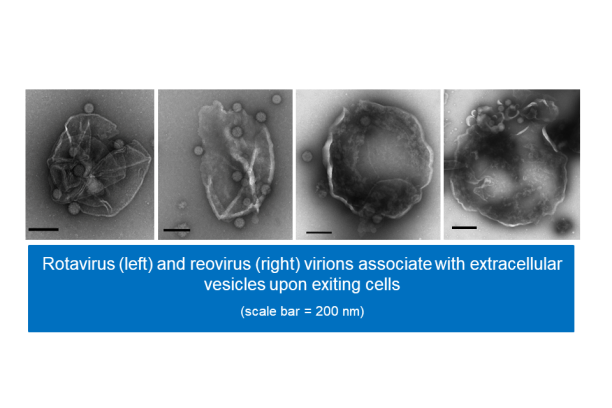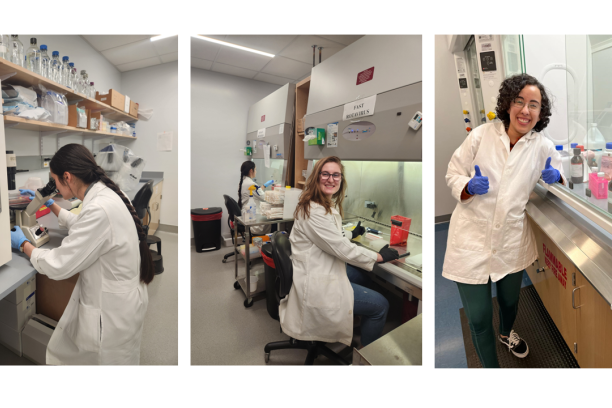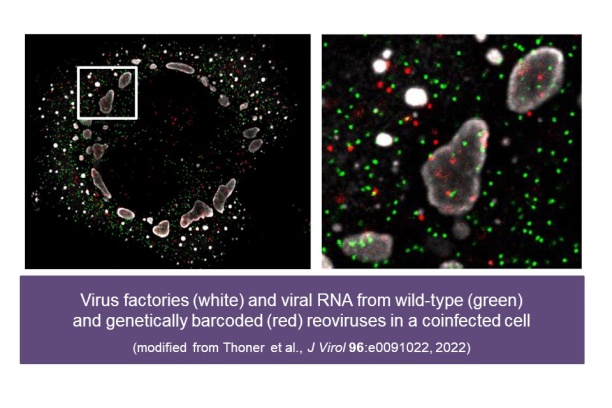Overview
To successfully infect the different tissues and hosts they encounter, viruses must be able to efficiently bind, enter, and replicate in target cells and rapidly adapt to changing environmental pressures. Research in the Ogden lab is focused on the tropism and diversity mechanisms of segmented, dsRNA viruses in the order Reovirales, including rotavirus and reovirus. Rotavirus is an important cause of diarrheal disease that results in the deaths of hundreds of thousands of infants and young children worldwide each year. In the Ogden Lab, we are identifying rotavirus tropism determinants, including viral outer-capsid proteins, FAST proteins, and transport as free particles or in association with extracellular vesicles. Reovirus is an oncolytic virus that infects many mammalian species, including humans, but causes disease only in newborn animals. The Ogden Lab uses reovirus to answer fundamental questions about segmented, double-stranded RNA virus structure, virus-cell interactions, and viral diversity. Themes we currently explore include packaging signals, gene segment reassortment during coinfection, virus egress and infection in extracellular vesicles, and structural dynamics of the attachment protein during cell entry. A long-term goal of the lab is to engineer dsRNA viruses to make better vaccines, therapeutics, and research tools.



